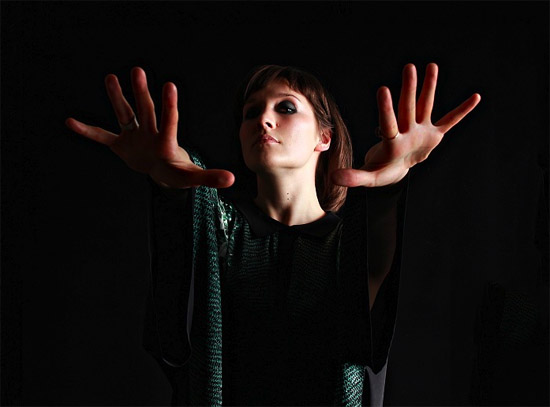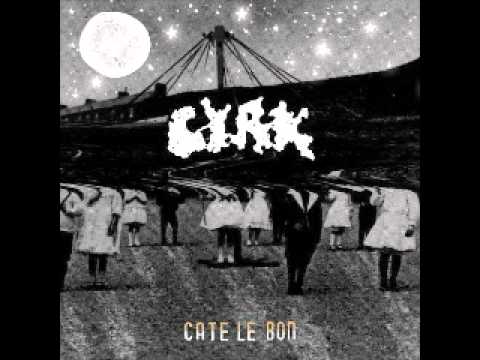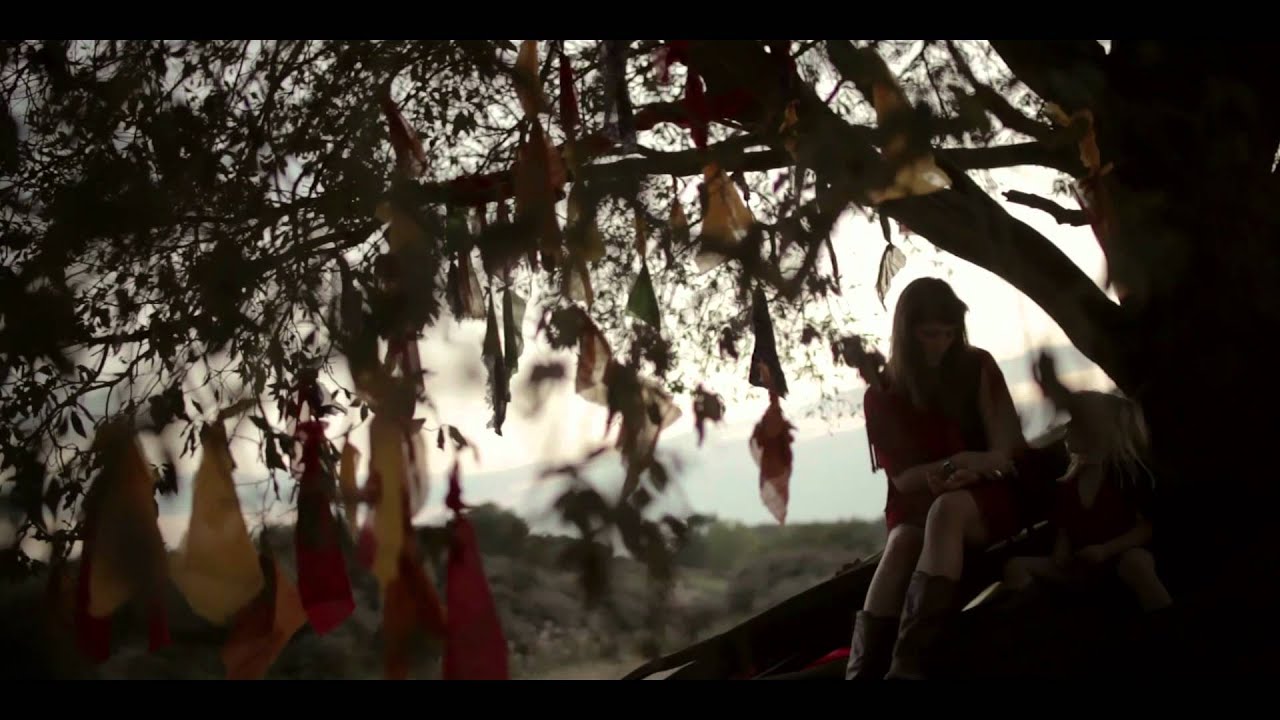To the uninitiated, Cate Le Bon is a purveyor of psychedelic-garage-folk (a genre that she might well inhabit on her own). This Welsh vocalist first came to public attention back in 2007 when, following a string of club nights in her native capital, she caught the ear of Super Furry Animals front man, Gruff Rhys. So taken was he by her performance that she was given several support slots on his upcoming solo tour, and then later an invitation to be a part of Neon Neon, Rhys’ adventure in hip hop/electro-pop fusion.
But it was the 2009 release of her debut album, Me Oh My, that really put Le Bon on the musical map. The album cemented the promise that she had suggested in innumerable gigs around the country. Although folky at heart, the debut illustrated her capacity to disrupt the serenity of its overall aesthetic with discordant blasts of guitar-fuzz and Pavement-inspired noise.
It also revealed her deliciously dark lyrical style, one that took memories of her upbringing on a farm in rural Wales, and wove them into a bleak tapestry of love and loss.
Two years of touring later, Cate finally took time out to record her follow-up album, CYRK (Polish for circus), which came out earlier this year. Harder edged than Me Oh My and infused with the playfulness of Faust and Syd Barrett and the tropicalia melodies of Os Mutantes, CYRK is a worthy successor to her critically lauded debut. She took time out to talk to tQ about her musical background, her inspiration for the new album and why her lyrical darkness can give Nick Cave a run for his money.
You’ve spoken in the past about being a product of your environment. In what ways then has your background influenced your music?
Cate Le Bon: Growing up there was always music being played in the house, and learning to play an instrument seemed a natural thing to do. Although there was never a pressure to do so, it was always fun. In hindsight, I do think my father probably encouraged me to learn the guitar in particular so that I could play chords while he jammed for hours. But I never minded. I was really lucky that I had a father who was so into music. He would make me killer mixtapes that introduced me to artists and bands like Neil Young and the Velvet Underground. The most influential on me though was Pavement. Hearing them for the first time when I was 13 was a big changing moment in my relationship with music.
And how did growing up in rural Wales impact on your music?
CLB: Wales played a big role in my musical education. Growing up in the 90s there were two key bands in Wales, Super Furry Animals and Gorky’s Zygotic Mynci; two very varied and innovative bands that really inspired me. I also think that growing up where I did, in the Welsh countryside, impacted on my lyrical content too. The sense of space and, at times, isolation; you can definitely see the influence of that in my music.
What was the inspiration for the new album?
CLB: I was really inspired when I was at the Away Game festival on the Isle of Eigg. It’s such a beautiful island and I felt very moved by the place. I write a lot about the sea, so it’s probably not a surprise that somewhere like that inspired me. Lyrically, I see the album as a time travel travelogue, filled with the stuff that I usually write about; the sea, matters of the heart and animals (and sometimes all three together).
Musically, how would you describe the album?
CLB: I think it’s a bit of a mish-mash, possibly with a harder edge than my first album. There are poppy bits, such as the first track on the album, ‘Falcon Eyed’, there’s folky bits, prog bits and a bit of psychedelia thrown in for good measure too.
How did the making of CYRK differ from the making of Me Oh My?
CLB: With my first album, a lot of the tracks had been knocking around in my brain for years. That wasn’t the case second time around. I had to sit down and write new stuff. I also found, following the experience of the first album, that I was much more aware of instrumentation when writing CYRK. I knew how recording the album would work in a studio, what instruments and sounds you could add. With Me Oh My, I was much less aware of that side of things and so wrote in a slightly different way.
How does your writing process work?
CLB: I write the music myself, have it in my mind (probably not the best place to keep it) and then go into the studio to get the bones of it down. Once it’s done I can then have fun with it, adding bits of instrumentation and other stuff.
I have a tendency to meander and not get things done, so it’s always reassuring to know that the bones of the album are down and recorded. I also find it more exciting to do it that way, more engaging.
Compared to your first release, CYRK sounds like more of a ‘band’ album. Was this intentional?
CLB: I didn’t set out to do that, but I think it’s just the way it turned out. I always really wanted to be in a band and I think on CYRK I indulged this desire a bit more. It’s interesting because working more closely with other people has also given me extra confidence in some ways, which has also influenced the album. I was never that confident in my ability as a guitarist but I was kind of pushed by those around me to play more, and I think it’s really helped. I also think that being with a band, especially one as tight knit as the one I work with, gives you more confidence as a performer and writer too.
Is it important to you to sing in both Welsh and English?
CLB: Unlike some people who are bilingual, I get the chance to use both languages equally in everyday life. So when it comes to singing it made sense for my songs to reflect this. But, I do find that it’s easier to write in English, largely because for me Welsh is a difficult language to write lyrics in. Gruff Rhys, Euros Childs and Meic Stevens are wonderful Welsh lyricists, people who seem to write with ease. I’d love to have that level of ease but I don’t. But it’s still great that I possess the ability to sing in another language, specifically one that I think is so beautiful.
You have worked with lots of other musicians, most notably Gruff Rhys but also many others, such as Meilyr and Gwion from Racehorses. What is it that you enjoy most about this?
CLB: I always write on my own so I love getting the perspective of other writers and musicians. I also know that I have learnt a lot from other people, taken something from watching their methods and attitudes. And sometimes, just having someone there to encourage you, maybe to try something new, is good. That’s certainly been the case on Cryk.
Lyrically, a lot of what you write feels quite sad. Is this intentional?
CLB: Growing up on a farm, you’re surrounded by death; and so when all the animals that you’ve become attached to start dropping dead then that’s bound to have an impact [laughs]. I think my first album was probably darker lyrically, whereas CYRK seems lighter to me. Whether other people agree, I don’t know. It might be a bit worrying if what I see as lighter seems just as dark to others.
Is there a song from the album that has any special resonance for you?
CLB: Not really. That’s a bit like someone choosing their favourite child. They’re all important in different ways, each one having a special meaning to me.
CYRK II is released on August 20th





